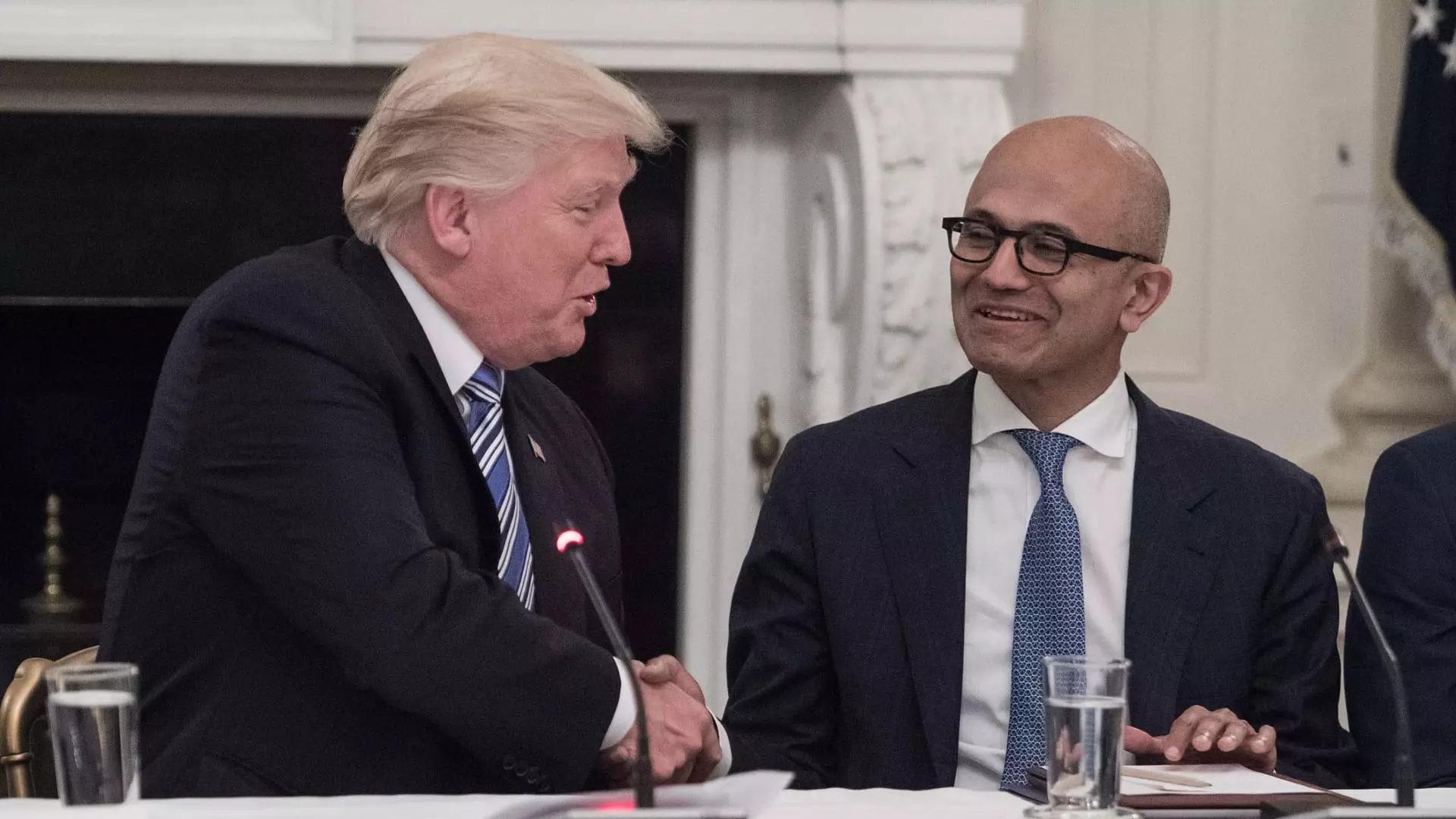In an unexpected turn of events, several leading technology companies are stepping up their financial support for President-elect Donald Trump’s inauguration fund. Most notably, Microsoft announced a contribution of $1 million, aligning itself with industry giants like Google and Meta, both of which made similar donations. This trend highlights a significant shift in the political landscape, where technology firms are increasingly willing to invest in the fortunes of a Trump administration. This article examines the implications of these contributions and the motivations behind the tech giants’ political engagement.
These sizeable contributions signal an awakening among tech leaders, who play pivotal roles not only in the economy but also in shaping public policy. By contributing to an administration known for its controversial stances, these companies are betting on the belief that strong political ties can yield favorable regulatory environments. OpenAI CEO Sam Altman and Apple CEO Tim Cook’s individual commitments of $1 million underscore a culture of solidarity among technology executives as they seek influence in the political arena. The possible contributions from Amazon show that this trend is not limited to one or two companies but represents a broader, collective initiative to secure a foothold in governmental discussions.
Microsoft’s prior involvement with both Trump and President Joe Biden reflects its strategic adaptability as it navigates an unpredictable political landscape. Contributing $500,000 each to both administrations demonstrates a pragmatic approach that seeks to maintain amicable relations across the aisle. Following the tumultuous negotiations over the potential acquisition of TikTok, which brought Satya Nadella into direct contact with Trump in 2020, it is clear that Microsoft aims to keep lines of communication open. Historically, tech firms have seen their stock prices and public perception heavily influenced by government policy, making their involvement in political fundraising not merely aspirational but essential.
The Stakes of AI Policy and International Strategy
One of the central concerns for these companies appears to be the future of artificial intelligence policy in the United States. With Brad Smith stating the need for a “smart international strategy” to bolster American AI, it is evident that these companies are looking for signals from the Trump administration regarding favorable policies. The engagement of tech leaders like Elon Musk, who is known for his innovative projects, suggests an urgency to establish an AI framework conducive to economic growth and global competition.
As technology companies navigate the complex waters of political contributions, they must weigh the risks against potential rewards. This convergence between the tech world and Washington is not merely a transactional relationship; rather, it embodies the intricacies of economic power, regulatory aspirations, and the quest for influence. The contributions to Trump’s inauguration fund illustrate that tech giants are not just passive observers but active participants in the political process, shaping the policy narrative for years to come. The true question remains: what impact will these alliances have on the development and direction of policy in the technology sector?


Leave a Reply